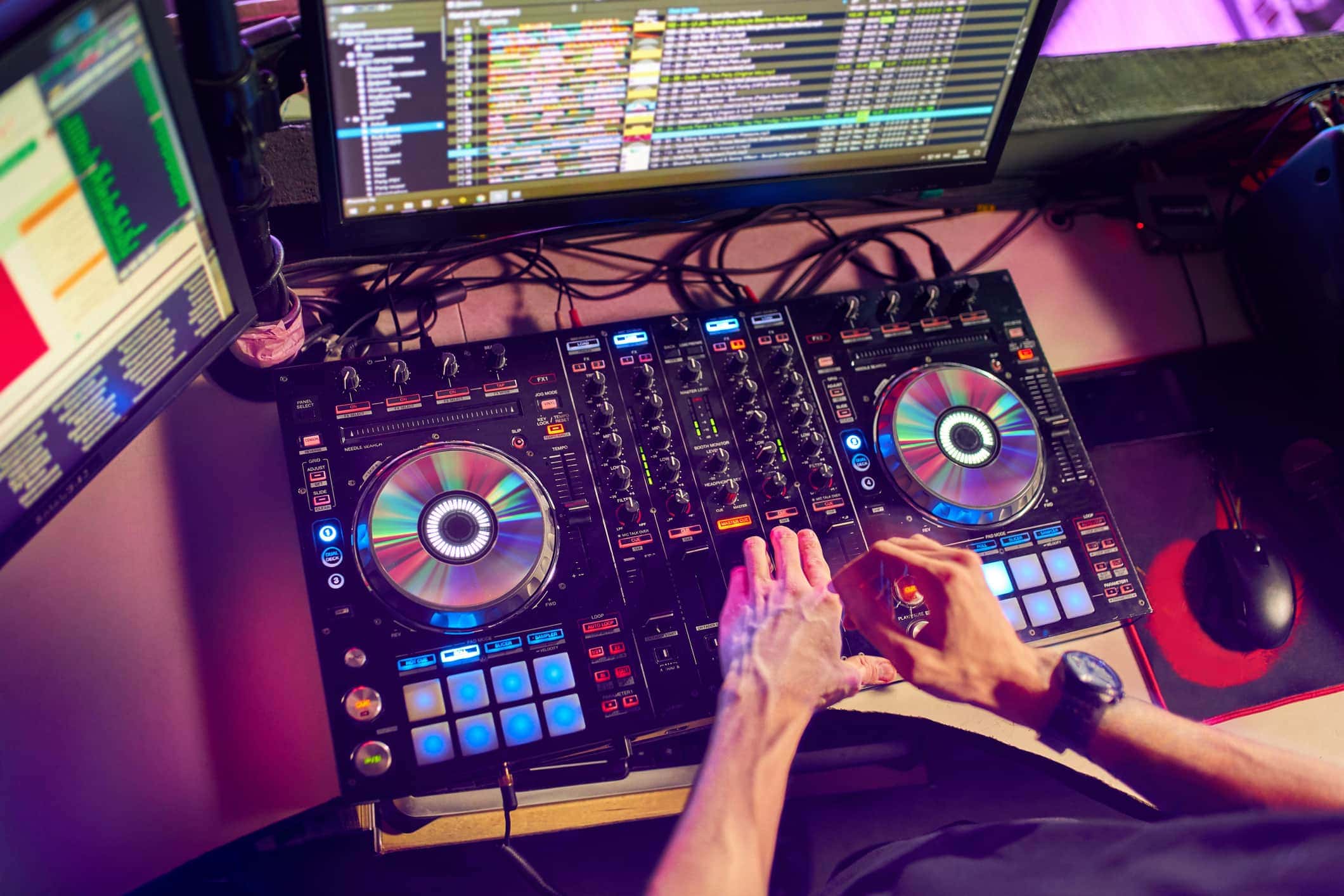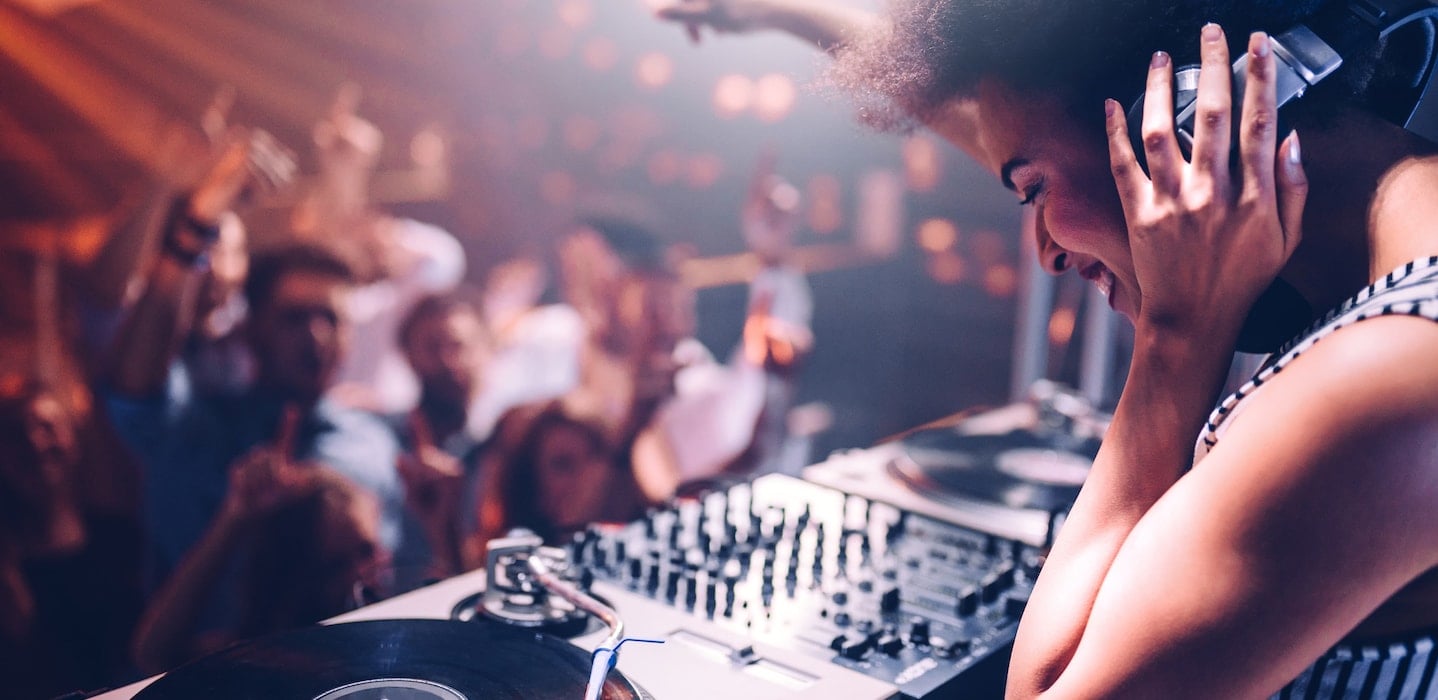Speakers
Let’s be real: sometimes, people only book a DJ because they expect you to come with a better sound system than they have on their laptop.
While some clients may be willing to rent high-end speakers to fill their venue with sound, speakers are essential DJ equipment so that you can show up prepared for any situation.
Readers’ picks:
QSC K10.2 10” 2-Way 2000 Watt Powered Speaker: $749.99
QSC K12.2 12” 2-Way 2000 Watt Powered Speaker: $799.99
The experts surveyed spoke highly of QSC speakers for a few reasons:
- These are the best consumer speakers available in their price range
- QSC speakers produce high-quality sound
- Don’t fiddle with copper wire—use these speakers’ straightforward inputs
- They’re also incredibly durable, and should last you for years to come
Browse QSC products by venue type and look for speakers with features that best suit your needs, including pole mounts and carrying cases.
If you want your audience to feel the bass, you’ll need a subwoofer, too.




